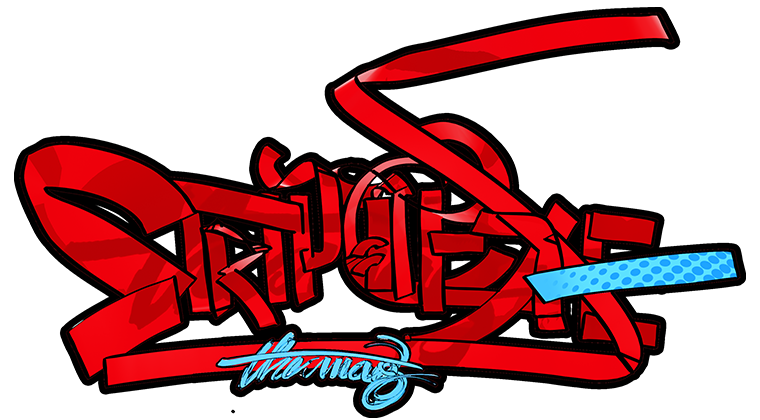“Sing thy songs of happy chear: Moonshadow”
Amongst the many whimsical tales of lost innocence offered by Vertigo titles, J.M. DeMatteis’ Moonshadow stands out as a distinctive work of love. Equal parts romantic and debauched, naïve and perfidious, funny as well as tragic, this is a work which echoes the melancholic tone of Gaiman’s Sandman whilst managing to be as sardonic as a Robert Crumb comic. Framed as a coming-of-age tale set in intergalactic space, it weaves in elements of satire, sci-fi, fantasy, Romanticism, fairy tale, mysticism and war-time drama to paint a compelling picture of a lost youth recounting his “journey to awakening” as an old man.
Moonshadow is the offspring of a hippie, Sunflower, and a capricious celestial being belonging to a race of whimsical creatures known as the G’L Doses, who are infamous for their incomprehensible actions which affect every mortal being in the universe. Neither good nor bad, neither gods nor devils, these grinning balls of light serve none except their own fickle minds- bringing ruin and damnation to a planet of peace-loving peoples whilst according harmony to a treacherous, war-torn world. But most baffling of all their actions are the mysterious kidnappings they conduct throughout the universe. Without any discernible pattern, they would cluster around any random individual, and a POP! POOF! And PING!, and the being would be heralded off to the intergalactic zoo, to live out the rest of eternity with other victims as they’d please. Sunflower is the unwitting flower-child victim of just such a whim, and ends up giving birth to the first-ever known child of a G’L Dose- the eponymous Moonshadow. Bred on a diet of a tales of adventure and romance thanks to a voluminous library and his mother’s quirky stories of her life on Earth, the sheltered Moonshadow is thrust into the vast universe on his fifteenth birthday along with his mother, his loyal cat Frodo, and an irascible, profligate Chewbacca-like being, Ira, to explore his fortunes. It is the adventures of this odd group, through galactic wars, sinister godmen, oily funeral directors, mercenary beings, mad monarchs, heartless generals, brave pioneers, gentle souls and interplanetary whorehouses, that constitutes the bulk of this mad, endearing tale.
To treat this comic as a thematic work which needs to be analyzed, decoded and demystified to the bare points of its narrative would be to barely scratch its surface. There is a depth which belies the absurdity and almost-bordering on slapstick humour which fills the pages. Each of the 12 issues begins with a passage or a poem from a work of literature, spanning from Tolkien to William Blake to even Henry Miller, and DeMatteis attempts at providing gravitas to some of the rather absurd adventures recounted in the following pages. But above all, it’s a curious coming-0f-age story, of innocence lost and cynicism accepted, and the strange setting, interspersed with a mind-boggling variety of twists and turns, is what makes it such an interesting work. Comprising of merely 12 issues with just about 32-33 pages each, it doesn’t SEEM comprehensive, but at the end, it certainly FEELS like it- so much is packed into its action-laden pages that one does sense the passage of a lifetime. This ode to a life lived strange, a Bildungsroman, is occasionally rambling with the narrative threatening to fall apart at times in what seems to have been written during a drug-induced binge, but manages to save itself in the nick of time with a deux ex machina. Strangely enough, this rather inept plot device seems right at home in a story that teems with Wonderland oddities.
An important note on the artwork provided in the book- Moonshadow was one of the first American comics whose art done entirely in painting, and was I glad for it. Jon J. Muth’s watercolours are absolutely gorgeous, at times surpassing the rather ludicrous text it is juxtaposed against. Certain scenes stick out in my mind – the war on the ravaged planet Tsuris, Ira’s story on his origins, Moonshadow’s final journey on a tightrope- there is a breathtaking quality to the art that makes you linger long on the pages, soaking in every line and shade and nuance. The large panels, the curious mixture of cartoon-like figures with a Pre-Raphaelite look, and the occasional erotic sketches reminiscent of Gustav Klimt provide for a kaleidoscope of artistic variety I was excited by. Which is why the lettering in the comic comes as a jarring aspect- shaky, spidery and downright illegible at times, it made me wish I was looking at it through a magnifying lens. But I don’t count it as a major nuisance, merely a minor inconvenience which does not manage to conceal the loveliness of Muth’s talent.
The end however, when it comes, can seem like a flat fall to many readers, which is why I’d refrain from calling it a must-read for a comic fan. The denouement leaves one wanting for more, to understand the urges behind the dotard Moonshadow’s need to share his youthful deeds. The “journey to awakening” is never fully explained, only tantalizingly hinted at, and can be frustrating for those who dislike open endings. But for those who do enjoy it, it’s a reader’s journey well traversed.





